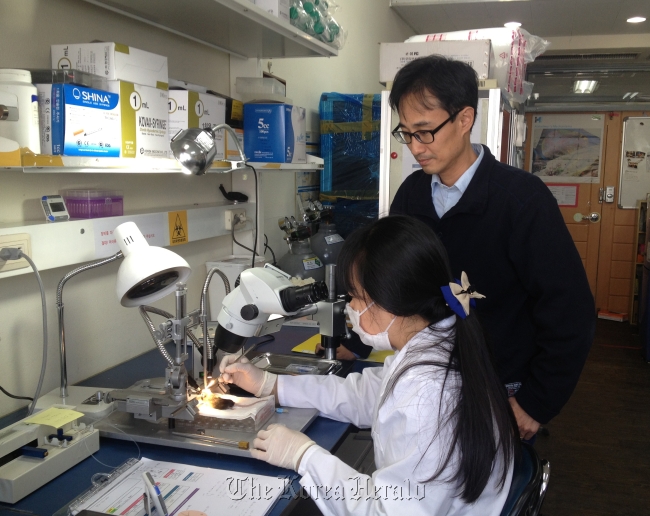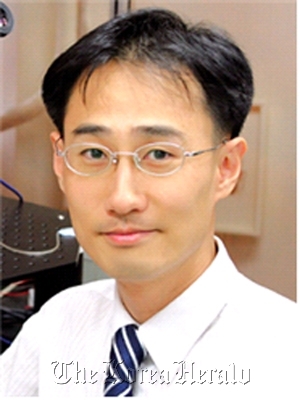
Staying fit through exercising and dieting helps maintain health and prevent age-related diseases.
However, many find it difficult to run a mile or two every day, or even regularly, as muscles and cells degenerate as they age.
Scientists at Korea Advanced Institute of Science and Technology have discovered a compound that could boost people’s metabolism and possibly prevent diseases associated with aging such Parkinson’s and Alzheimer’s.
A team led by professor Kim Dae-soo of KAIST’s department of biological sciences said that beta-lapachone (betaL), the quinone-containing compound found in the lapacho tree, eliminated aging agents in mice.
 |
Kim Dae-soo |
The consumption of betaL works as effectively as jogging and less food-intake, leading to stronger muscle reflexes and improved brain functions.
It can stimulate the nicotinamide adenine dinucleotide, or NAD+ coenzyme, by boosting the NQ01 (quinoneoxidoreductase 1) enzyme, which removes NADH aging material.
“The enzymatic function of NQ01 is decreased in aged tissues and enhanced by calorie restriction, a beneficial strategy for body health and life-span,” the team said in the scientific journal PLOS One.
Its test was done by separating and comparing 13-month-old mice into three groups ― normal diet, calorie restriction and betaL.
Lab results showed that mice fed with betaL were stronger, similarly to those in the calorie restriction group, than mice in the normal diet.
“These results suggest that betaL boosts the basal metabolic rate of aged mice, which is consistent with the fact that the metabolic rate can be modulated by NAD-associated signaling pathways,” the team said.
It added that the compound “improved their behavioral functions and prevented mitochondrial degenerations, a major cause of muscular atrophy.”
Many drugs have been developed to prevent age-related illnesses, but with limited effects.
Kim said in a press release that this latest discovery of betaL will hopefully pave the way to the development of effective medicines that can help protect people from diseases such as dementia in the near future.
His research had been funded by the National Research Foundation of Korea and the Ministry of Education, Science and Technology.
By Park Hyong-ki (
hkp@heraldcorp.com)



![[Herald Interview] 'Korea, don't repeat Hong Kong's mistakes on foreign caregivers'](http://res.heraldm.com/phpwas/restmb_idxmake.php?idx=644&simg=/content/image/2024/11/13/20241113050481_0.jpg)

![[KH Explains] Why Yoon golfing is so controversial](http://res.heraldm.com/phpwas/restmb_idxmake.php?idx=644&simg=/content/image/2024/11/13/20241113050608_0.jpg)



